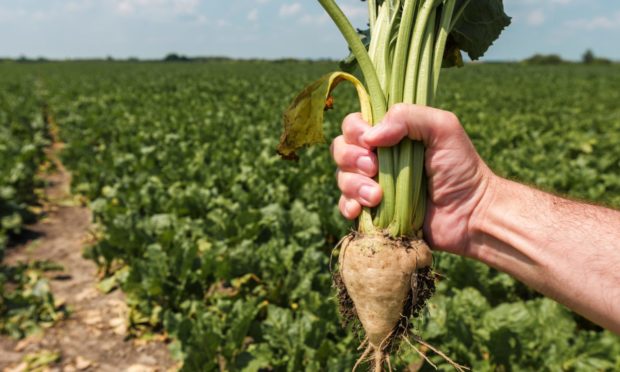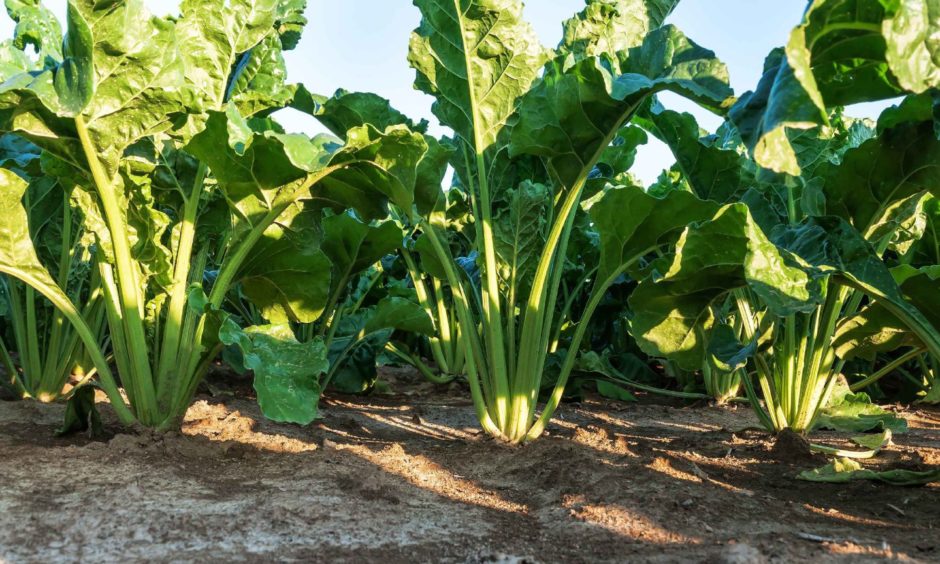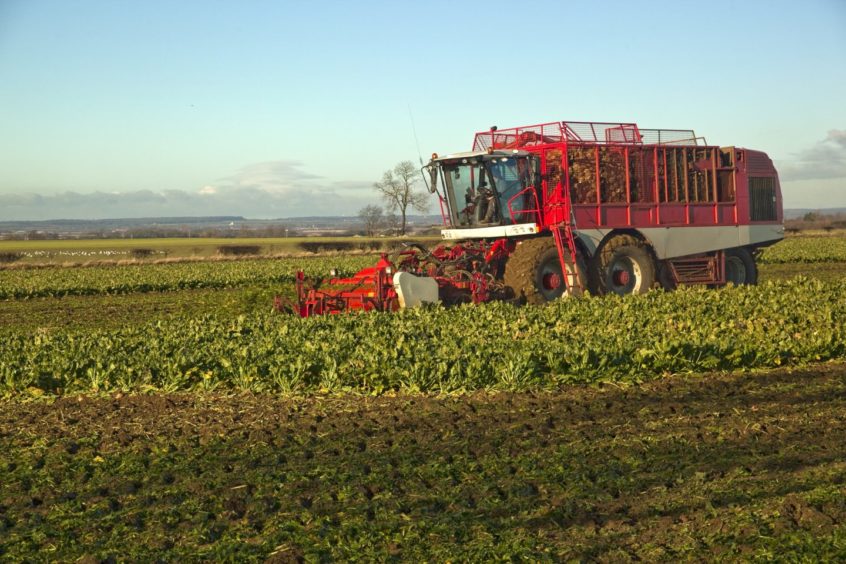Hopes are growing for the reintroduction of a Scottish sugar beet industry following new funding for a pilot project.
The sugar beet working group’s first crop has been successfully harvested and now the consortium has secured financial backing from Scottish Enterprise to analyse the crop’s potential environmental and economic impact.
SAC Consulting, the Scottish Agricultural Organisation Society (SAOS) and the Industrial Biotechnology Innovation Centre (IBioIC) are the key players in the group which sees the crop as a key building block for the development of sustainable supply chains and a ‘bio-economy’, which uses natural materials instead of petrochemical compounds in manufacturing.
The group says a local source of sugar beet could pave the way for the development of an ethanol-producing refinery in Grangemouth, and Ian Archer, the technical director at IBioIC, said the pilot project had made “huge progress” over the last year.
“We have taken the concept of a bio-economy based on sugar beet production from a nice idea to the harvesting of the first yield in 50 years and the outline of how a farming co-operative would be structured,” he said.
“This next step should confirm what we already know, with data to support the range of benefits associated with growing sugar beet.”
Iain Riddell of SAC Consulting said he was confident the crop could be grown and harvested on better land in the east of Scotland, as group members were already growing it for use in anaerobic digestion plants.
He added: “We welcome the viability study funding, which gives our Sugar Beet Working Group the opportunity to further investigate agronomy, harvesting logistics, refining and by-products, and, most importantly, the investment required and support mechanisms that could credit sugar beet growers for their contribution to industrial carbon savings, which help achieve Scotland’s net zero targets.”
SAOS head of co-op development, Jim Booth, said the only way to get the project off the ground and farmers involved would be through co-operation.
He added: “Creating a producer co-op means the production, crop management, harvesting, marketing and delivery is optimised, safeguarding grower returns, and importantly ensuring a collaborative supply chain approach.”


